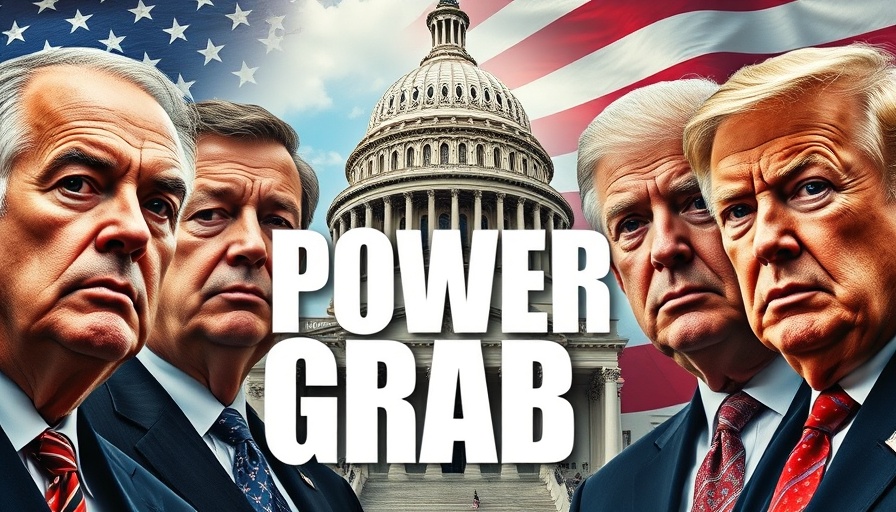
The Power Dynamics of the PayPal Mafia in U.S. Politics
The notion that a small circle of Silicon Valley moguls could hold such substantial influence over politics might seem far-fetched to some, yet the reality of the PayPal Mafia stands testament to this very phenomenon. Emerging from the eBay acquisition of PayPal in the early 2000s, these tech billionaires have transitioned from fintech pioneers to powerful political players. Today, this article delves into the historical context, individual contributions, and the potential impact of the PayPal Mafia's involvement in U.S. governance, with broader implications for the cryptocurrency market.
In 'Is the PayPal Mafia Secretly Running the U.S. Government?', the discussion dives into the influential connections between tech billionaires and U.S. politics, exploring key insights that sparked deeper analysis on our end.
The Rise of the PayPal Mafia: A Historical Overview
Founded in 1998 and later merging with X.com, leading to the creation of PayPal, this network began encompassing influential tech entrepreneurs who made their mark in financial technology. Co-founders like Peter Thiel, Elon Musk, and Reid Hoffman have evolved into key figures not just in tech, but also in U.S. policy. Thiel's venture capital successes, Elon Musk’s transformative roles across various industries, and Hoffman's creation of LinkedIn all stem from their shared origins at PayPal. This interconnected web illustrates how their collective expertise has shaped their subsequent ventures, reinforcing the notion of the PayPal Mafia's elite status.
Macro Influences on U.S. Policy and Market Trends
The PayPal Mafia’s impact on U.S. governance became apparent with their strategic support of Donald Trump’s presidential campaign. Their libertarian leanings emphasize minimal government intervention, a philosophy evident in regulatory shifts they promote. For example, Musk's leadership in the Department of Government Efficiency (Doge) seeks to streamline government processes, cutting bureaucratic red tape that many tech entrepreneurs criticize. As these figures remain entrenched in power, their influence extends into market policies, especially regarding cryptocurrency regulations. As the U.S. seeks to establish cryptocurrency reserves, their advocacy could transform the legal landscape supporting digital currencies.
The Intricacies of Influence: Navigating Conflicts of Interest
Critics of the PayPal Mafia's involvement warn of potential conflicts of interest, given the extensive financial stakes these individuals hold across various industries. For instance, David Saaks contributes to governmental policies that directly affect tech firms he is financially tied to, raising eyebrows about the integrity of the regulatory processes. This intersection of tech and politics not only redefines markets but also places significant power in the hands of a few, highlighting a trend towards oligarchy in U.S. governance. However, as positive regulations can spur innovation, the potential for abuse of power rises significantly as well.
Future Predictions: The PayPal Mafia's Long-Term Impact on Cryptocurrency
Looking ahead, the increasing entwinement of cryptocurrency with governance policies signals a seismic shift in financial paradigms. As the PayPal Mafia pushes for clearer regulations on cryptocurrencies, it is likely to open the floodgates for widespread adoption. This creates fertile ground for altcoins and digital assets purportedly backed by the movements of figures like Thiel and Musk, potentially propelling the prices of cryptocurrencies such as Solana and Ethereum. Project reviews and market updates will be essential tools for investors monitoring how these regulatory changes manifest in real-time.
Conclusion: Navigating the New Era of Cryptocurrency and Governance
The legacy of the PayPal Mafia serves as a reminder of the profound influence concentrated wealth can wield within political frameworks. As these tech titans forge policies that shape both the future of governance and market dynamics, their interconnected narratives will inevitably drive trends within the cryptocurrency landscape. Keep an eye on these developments—navigating the cryptosphere will require an understanding of the stakeholders involved and the regulations that come alongside them. To stay informed, engage with ongoing market analysis, subscribe to platforms like Coin Bureau, and broaden your cryptocurrency education through webinars and trading tutorials. An informed investor is an empowered investor.
 Add Row
Add Row  Add
Add 




 Add Row
Add Row  Add
Add
Write A Comment